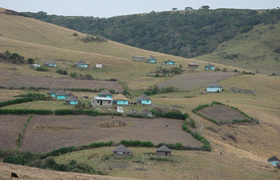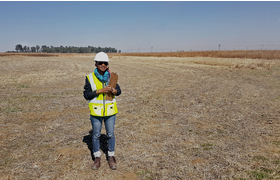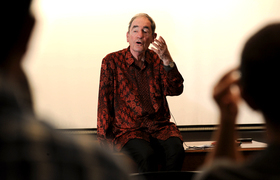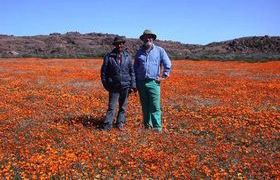Videos unpack intricacies of land administration in SA
29 September 2020 | Story Niémah Davids. Photo Getty Images. Read time 5 min.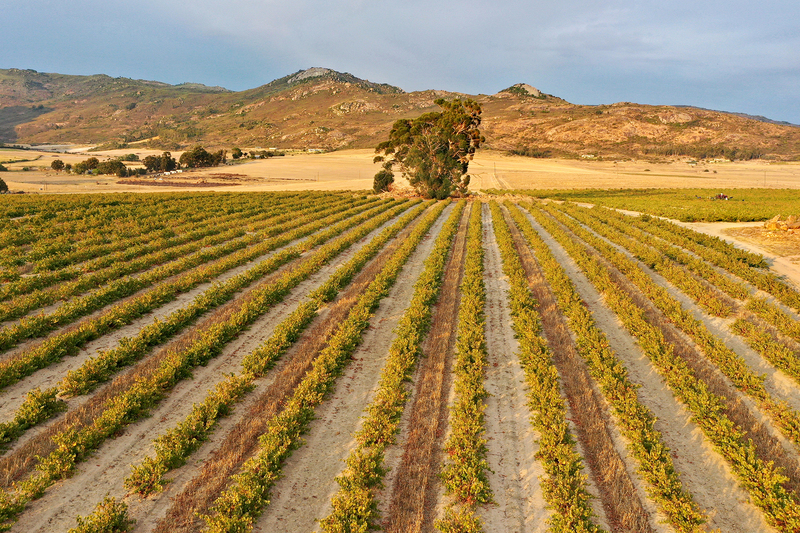
An inter-institutional collaboration between the University of Cape Town (UCT) and the University of the Western Cape (UWC) – with input from civil society – has delivered videos that unpack the multiple layers associated with land administration in South Africa.
Part one of the series of videos titled “An introduction to land administration” was developed by Dr Simon Hull, a senior lecturer in the Geomatics Division in UCT’s School of Architecture Planning and Geomatics, in partnership with Dr Rosalie Kingwill, a research associate at UWC’s Institute for Poverty, Land and Agrarian Studies. Tshepo Fokane, a researcher at the Alliance for Rural Democracy, was also part of the production team.
According to Dr Hull, the Land Network National Engagement Strategy in South Africa approached him to produce a range of videos aimed at students, academics and public and private sector representatives with a keen interest in land administration.
“My background in geomatics gives me a certain level of bias. I knew I had to rely on others to challenge my bias and expand my thinking.”
He said that the videos take a systemic look at land administration in South Africa and unpack the various subcomponents associated with the subject.
“I was approached in mid-April, when we were in the thick of emergency remote teaching and learning. I knew from the onset that I would not be able to do it alone. My background in geomatics gives me a certain level of bias. I knew I had to rely on others to challenge my bias and expand my thinking,” Hull said.
Simplifying land administration
At the most basic level, land administration can be conceived of as:
- the operational component of land governance
- the pursuit of national land policy goals, plans and strategies
- the process of determining, recording and disseminating information about the relationship between people and land.
Some processes include the transferring of rights in land from one party to another through sale, lease, loan, gift and inheritance; the regulating of land and property development; using and conserving land; gathering revenues from land through sale, lease and tax; and resolving conflicts concerning ownership and use of land.
These processes are commonly referred to as the four functions of land administration: land tenure, land value, land use and land development, including conflict resolutions pertinent to each of these functions.
Video content
Hull said that the video content unpacks everything from land policy and land management, to land administration, land tenure, land rights and land development, as well as the overarching concepts of land governance and land information.
The videos explore and shed light on a range of land concepts and the importance of land administration in the face of global challenges, such as population growth, urbanisation, climate change and poverty reduction.
Further, the videos also highlight the influence of colonially introduced land concepts and how these concepts have led to “binaries and dualities” in land administration and land rights, and exclude the majority of land rights-holders. The videos introduce alternative ways of examining these “western-inspired” concepts using an inclusive approach.
Pertinent project
Two government reports, “Accelerating fundamental change: The Motlanthe report” (chaired by former president Kgalema Motlanthe and published in 2017) and the “Presidential advisory panel on land reform and agriculture” (chaired by the National Planning Commission’s Dr Vuyokazi Mahlati and published in 2019), highlighted the need for tertiary institutions in the country to provide training on land administration.
Both reports also highlight the lack of “sound land administration” as a possible contributing factor to the large-scale failures of land reform in South Africa.
“Through cross-institutional collaboration on a multi-disciplinary topic like land administration, we have produced a very good introduction to the subject.”
In light of this, Hull organised a series of workshops last year which examined capacity development in land administration. The workshops took place in Cape Town, East London and Pietermaritzburg and were well received by participants.
“Through cross-institutional collaboration on a multi-disciplinary topic like land administration, we have produced a very good introduction to the subject, which should serve to dispel some myths and misunderstandings,” Hull said.
Part two of the video series, which will be released soon, will take a look at land administration challenges in South Africa.
 This work is licensed under a Creative Commons Attribution-NoDerivatives 4.0 International License.
This work is licensed under a Creative Commons Attribution-NoDerivatives 4.0 International License.
Please view the republishing articles page for more information.







